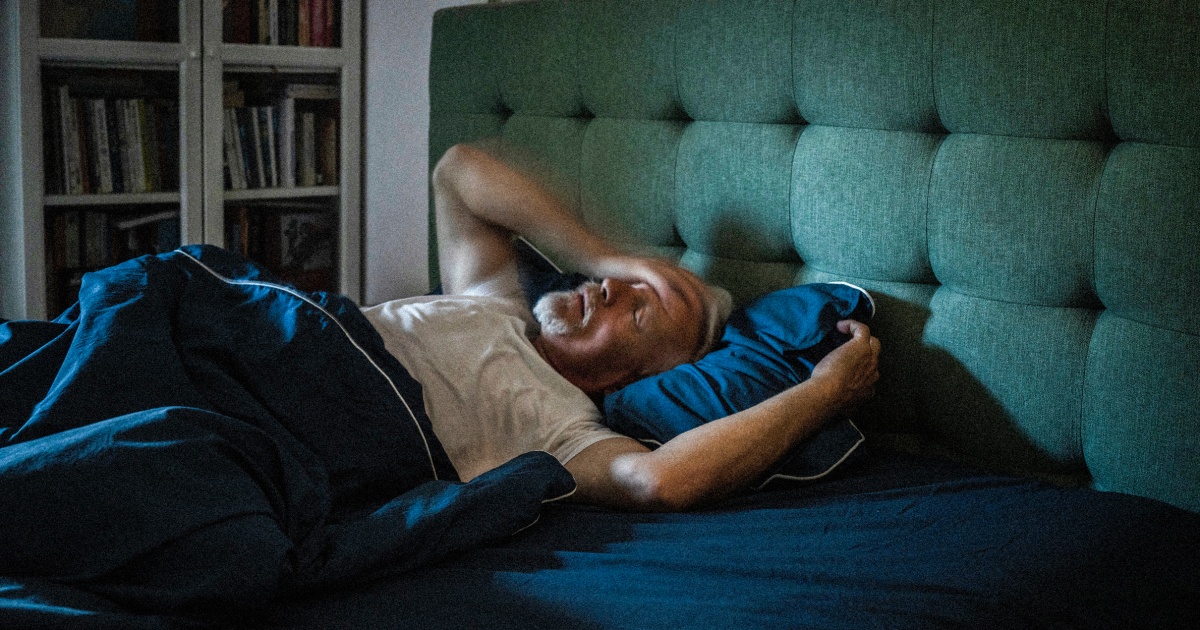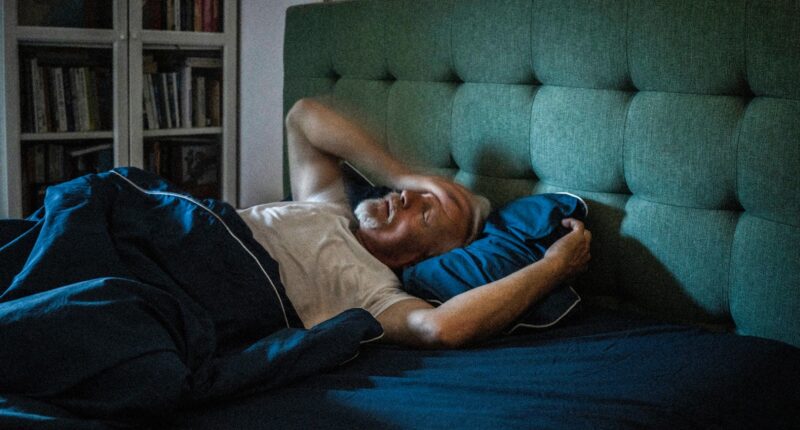
Most people with untreated sleep apnea develop heart disease, and researchers have assumed that’s why they also have cognitive problems. But a small new study finds that obstructive sleep apnea itself is harming the brain, giving new urgency to recognizing and treating the disorder.
Otherwise healthy middle-age men newly diagnosed with obstructive sleep apnea showed poorer mental function in areas such as judgment, impulse control and recognizing other people’s feelings compared to men without the condition, according to research published Thursday in Frontiers in Sleep.
Obstructive sleep apnea, the most common form, occurs when the throat muscles relax and airways become blocked. Another type is central sleep apnea, which occurs when the brain doesn’t send the right signals to the muscles that control breathing. In both types, people are briefly jolted awake by the need for oxygen.
For the new study, the researchers recruited 27 men ages 35 to 70 who weren’t overweight and who had new diagnoses of mild to severe obstructive sleep apnea. Seven men of similar age, body weight and education who didn’t have sleep apnea were also included. Both groups took a series of tests. Men who had obstructive sleep apnea showed cognitive deficits that rose with increasing severity.
It’s estimated that as many as 26% of adults in the U.S. ages 30 to 70 have sleep apnea, according to the American Academy of Sleep Medicine. That may be an underestimate, because the condition is widely underdiagnosed, experts say. It’s typically thought to affect men more than women.
Sleep apnea has been linked with memory and thinking problems, but the new study finds that cognition is affected even when men have no underlying health conditions, emphasizing how important it is to treat it early, a senior co-author, Dr. Ivana Rosenzweig, a neuropsychiatrist who heads the Sleep and Brain Plasticity Centre at Kings College London, said in an email.
“Our patients were mostly unaware of their cognitive deficits,” Rosenzweig said, adding that the participants wouldn’t have sought help “were it not for snoring and bothering their partners.”
The new study is small, and Rosenzweig would like researchers to conduct bigger studies that include women.
Until menopause, women are much less likely to develop the sleep disorder; however, its prevalence in women increases drastically with age and weight, Rosenzweig said.
“It almost levels out between the sexes after the menopause,” she said.
What causes sleep apnea?
Why obstructive sleep apnea causes cognitive deficits isn’t clear, although scientists suspect that the frequent, albeit short, awakenings lead to fragmented sleep and that the periods when breathing briefly stops lead to temporary drops in blood oxygen levels.
Risk factors for obstructive sleep apnea include:
People often don’t know they have sleep apnea, Rosenzweig said. They typically seek help only when their partners tell them there’s a problem, such as snoring.
“There might be clues, such as morning headaches or increased daytime somnolence and fatigue,” she said.
Sleep apnea can be worse for health than insomnia because it can make it hard for the brain to get to deep sleep, said Dr. Joel Salinas, a behavioral neurologist and researcher at NYU Langone Health and the chief medical officer at Isaac Health in New York.
The brain cycles through different stages during sleep, including light and deep sleep and rapid eye movement, or REM, sleep, which is when dreaming occurs.
Deep sleep, also known as stage 3 sleep, is when memories are stored and the brain cleans out proteins that could cause damage over time, said Salinas, who was not involved in the new study.
“People with obstructive sleep apnea don’t spend much time in stage 3, instead waking up in stage 2 and then going back to stage 1 again,” he said.
“Over time these people do seem to have a higher accumulation of proteins, such as amyloid, which may increase the risk of cognitive impairment or dementia,” Salinas said.
Sleep apnea treatments
Doctors use numerous strategies to treat sleep apnea, said Dr. Andrew Varga, a neuroscientist and physician at the Mount Sinai Integrative Sleep Center and an associate professor of medicine at the Icahn School of Medicine at Mount Sinai in New York. Varga was not involved in the new study.
The most common is the continuous positive airway pressure, or CPAP, machine, which keeps airways open during sleep.
There are also mandibular advancement devices that hold the lower jaw forward to keep the airway open. “They are the second most popular method,” Varga said.
There are also operations to change structures in the throat. They can be as minimally invasive as removing the uvula, the fleshy structures hanging above the throat and some of the soft palate, the muscular part of the roof of the mouth, Varga said.
Some patients depend on implantable pacemaker-like devices that tell the nerves in the tongue to push it forward. At the more invasive end of the spectrum, there is a surgery to reconstruct the jaw. “The jaw is broken on both sides and then pulled forward,” Varga said.
Brain studies have shown a decrease in activity in areas similar to what is seen in people with neurodegenerative diseases, Salinas said. That’s why it’s important to treat that type of sleep apnea early, he added.
Lifestyle changes are a good place to start, he said.
“It’s always important to address all the potentially reversible issues, such as being overweight and high blood pressure,” he said. “The earlier you address these issues and manage them over the long term, the greater the impact and the likelier it is you’ll have a healthy brain for the rest of your life.”
Source: | This article originally belongs to Nbcnews.com










